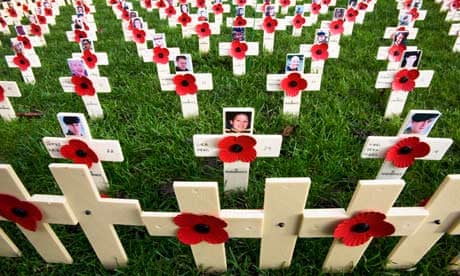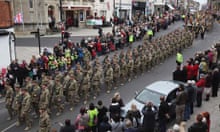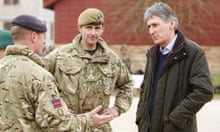The death of the 400th Briton killed serving in Afghanistan is another grim statistic in a conflict that has been going on so long it would hardly be surprising if people became inured to the toll.
It offers another chance to pause and reflect, and to ask whether another milestone tells us anything significant about what has happened and is still happening in Afghanistan.
Context is important. Though UK forces have been in the country since 2001, only five British troops died in the first five years of combat. The numbers started rising fast in 2006, when 3,300 personnel from 16 Air Assault Brigade were sent to Helmand province amid fears the Taliban had reclaimed territory in the south of the country.
Explaining the decision to triple troop numbers, John Reid, then defence secretary, said the UK could "not risk Afghanistan once again becoming a sanctuary for terrorists".
However you characterise the Taliban, the British contingent quickly discovered they had arrived much too late, and with too few people. At times, they were in danger of being overrun.
In 2006, 39 British troops died, the following year 42. In the following three years, the figures rose sharply – 51, 108, 103. In 2011, the figure dropped to 46.
The curve on the graph tells you something about the fierceness of the fighting in 2009 and 2010. It does not explain how western governments so completely underestimated what needed to be done to impose some kind of stability and security in Afghanistan's contested heartlands. The drop in casualties last year came after the US "surged" 30,000 extra combat troops into the country, spearheading a campaign to take on the Taliban in its strongholds.
So the 400th death comes at a time when casualty rates are falling. But British fatalities have to be put in a Nato context, and a civilian one too.
In 2011, 418 American troops died in Afghanistan. In 2010, 499 were killed. On 1 January this year, a total of 1,864 US personnel had died in the conflict, much the highest of any nation in the military coalition.
Twenty-eight nations have lost troops in Afghanistan, but Canada – which has lost 158 – is the only other country to have suffered more than 100 casualties.
None of which compares to the number of Afghan civilians estimated to have died since 2006. The United Nations believes almost 10,000 died as a result of the conflict in the four years to 2010.
Within three years, only a few hundred British personnel will remain in Afghanistan. The withdrawal has already begun and, if trends continue, the number of British casualties is likely to fall as hundreds of troops head back to the UK this year, with thousands more to follow in 2013 and 2014.
Sometimes it is easy to look at the conflict through the prism of statistics, but 400 is not just a number. It is a person who will have a name, an age, and a rank. Their death will mean another family coping with the loss of a loved one; friends and colleagues with the pain of being told someone they cared for won't be coming home. The military will put a protective arm around those who are suffering; liaison officers will take families through the arrangements, commanders of regiments will write eulogies and, where possible, read lessons at funerals. Wives of other troops will form a tightly knit circle around women who have lost a husband or partner.
These formal and informal practices will carry on out of the spotlight, and bring comfort to relatives who will have good reason to question why British troops are still out there, and the price of the sacrifice they have made.





